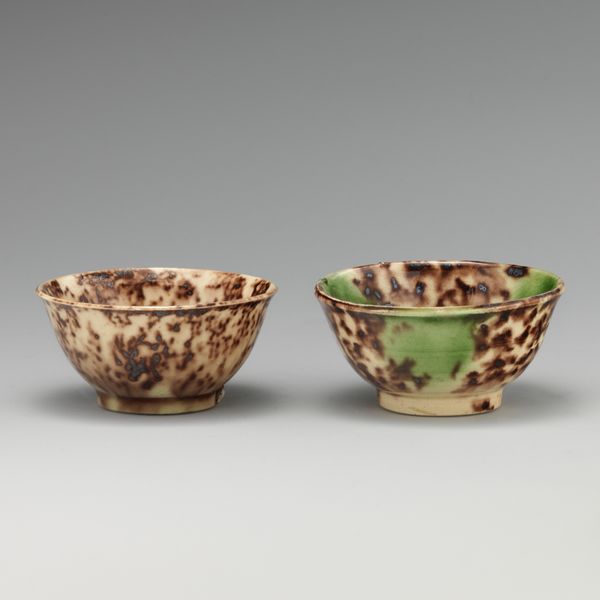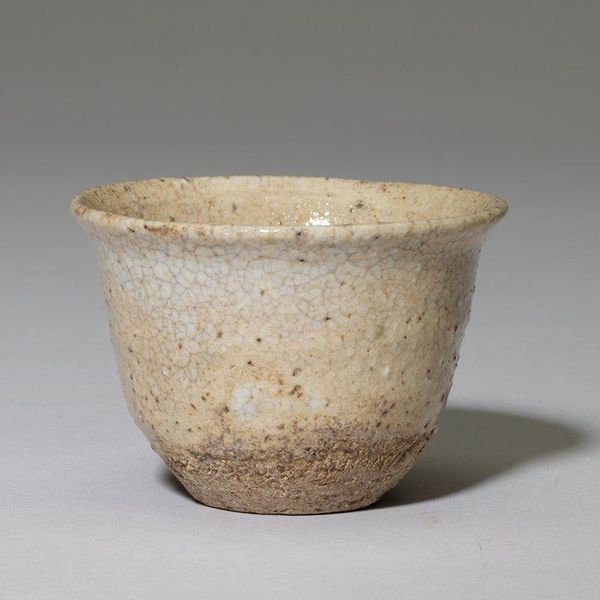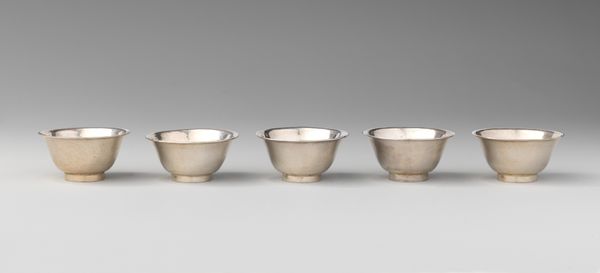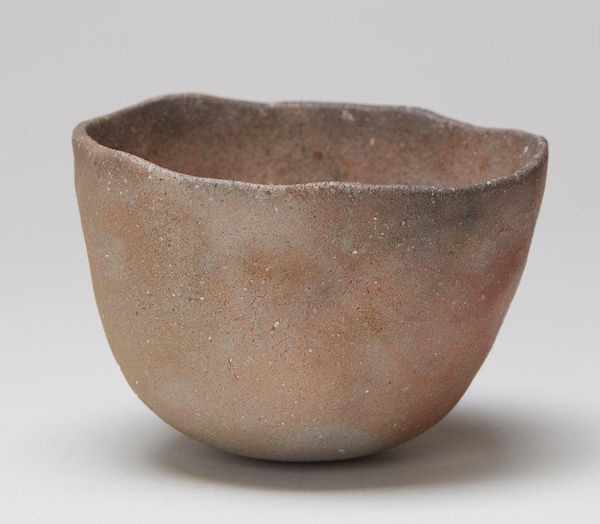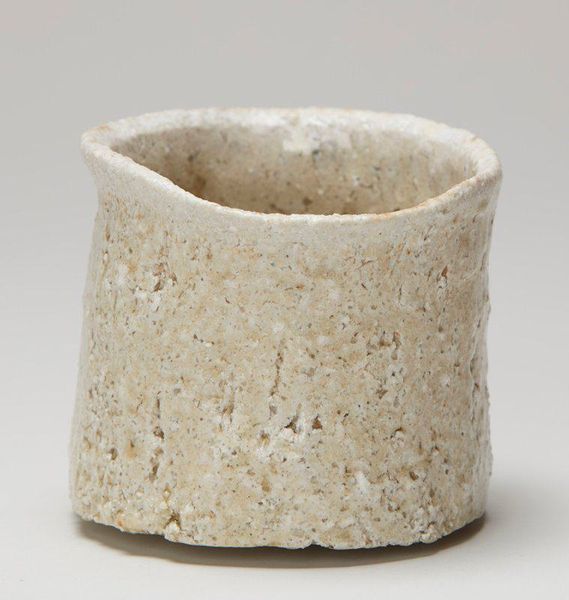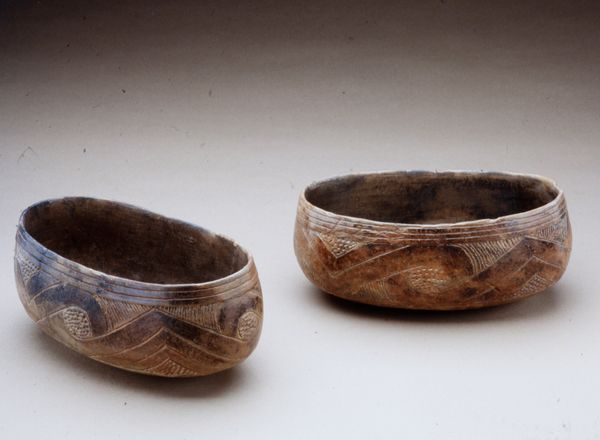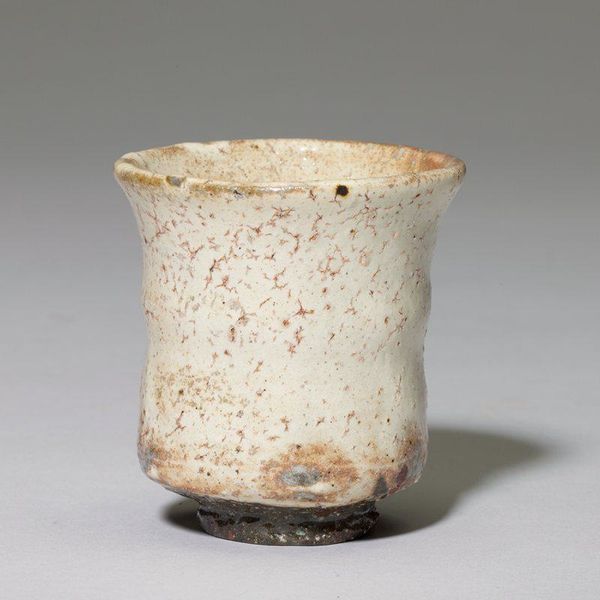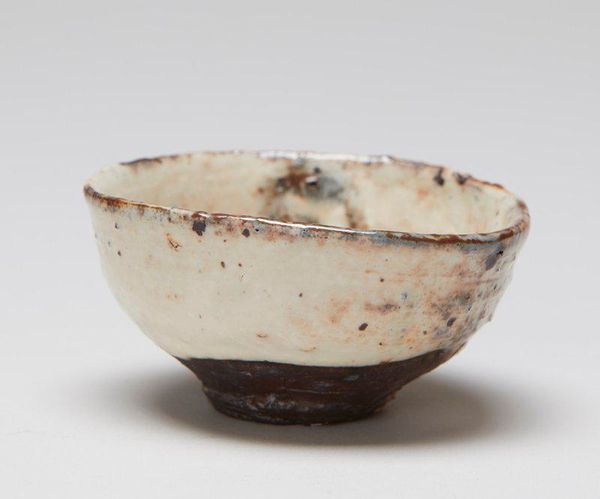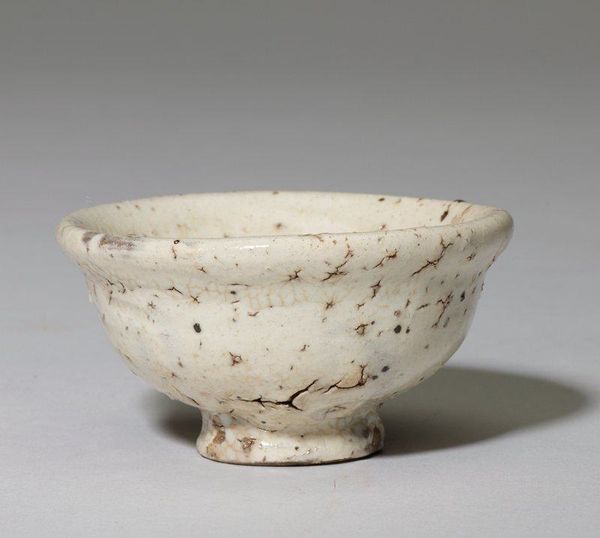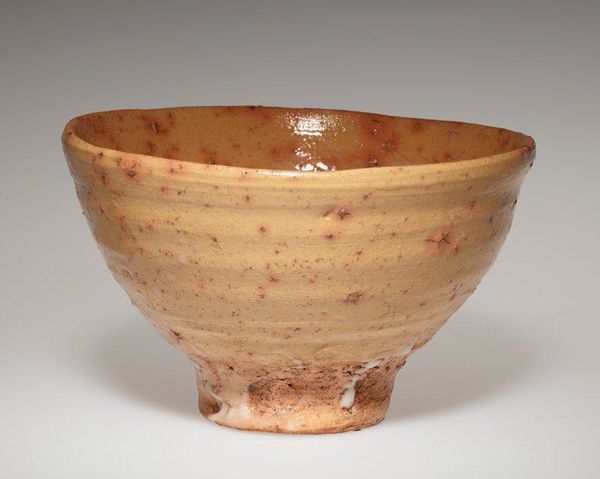
ceramic, earthenware
#
asian-art
#
ceramic
#
earthenware
#
ceramic
Dimensions: 1 5/8 × 2 5/8 × 2 1/2 in. (4.13 × 6.67 × 6.35 cm)
Copyright: Public Domain
Editor: So, here we have a sencha cup with poem by Ōtagaki Rengetsu, dating from the 19th century. It's a delicate earthenware ceramic piece. I’m struck by the muted tones and the incised poem; it feels both simple and deeply contemplative. What do you see in this piece, in terms of its broader historical and social implications? Curator: I see a powerful intersection of art, poetry, and female agency. Rengetsu was a Buddhist nun, yes, but also a renowned poet and ceramicist in a period when women's artistic expression was often circumscribed. How do we read the act of inscribing poetry onto a functional, domestic object like a tea cup? Editor: Almost like imbuing a common object with intellectual and spiritual value? Curator: Precisely. And considering the wider social context – the political upheaval and societal changes in 19th-century Japan – her work can be interpreted as a form of quiet resistance. Think about the role of women and artistic spaces at the time, which would shed a lot of light on the impact of her poetry. What do you think about how she presents feminine identity within the teacup itself? Editor: I see what you mean! The intimacy of a tea cup… perhaps a deliberate reclamation of a space traditionally associated with women, transforming it into a site of poetic expression. I hadn't considered the potential for it to push for artistic expression within this space. Curator: It prompts us to ask: how does Rengetsu negotiate the boundaries of gender, religion, and artistic expression in her work, and how can we apply this reading to interpret other women’s artwork? It challenges us to see art not just as aesthetic object, but as a tangible manifestation of social and political currents. Editor: That really shifts my perspective! I was focused on the individual artistry, but understanding the context really opens up a richer interpretation. Curator: Indeed, it reveals the interwoven layers of personal narrative and social commentary. Hopefully our conversation allows us to view this modest tea cup not only as a work of art, but as an expression of womanhood.
Comments
No comments
Be the first to comment and join the conversation on the ultimate creative platform.




